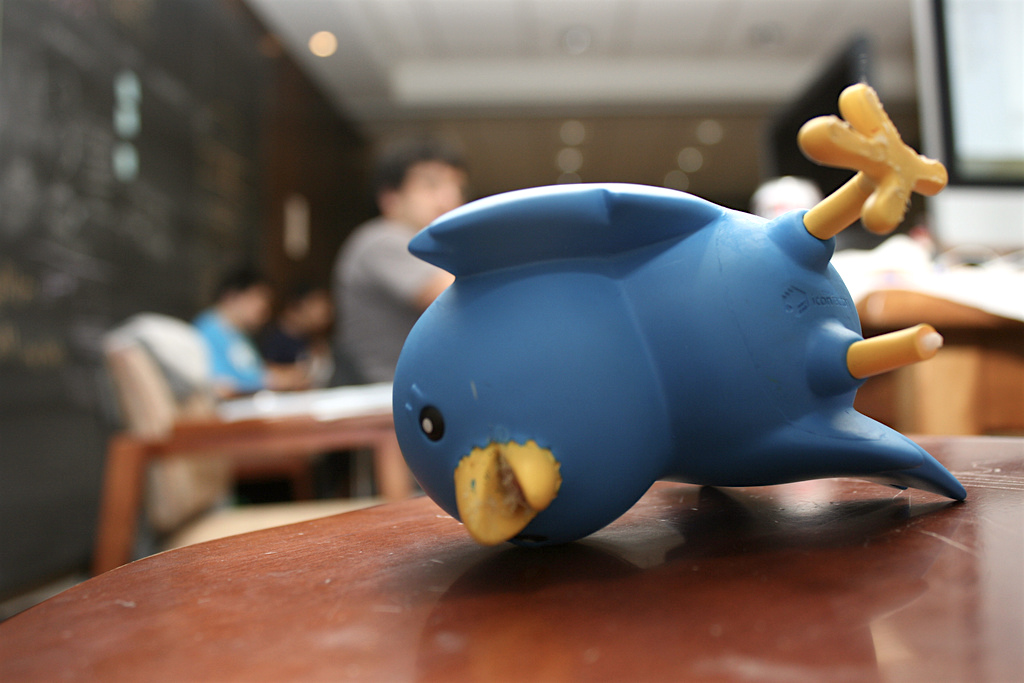ITMO University Digest: New Research, Alumni Experience and International Projects
Today we present to your attention materials about the projects of graduates and specialists of the ITMO University. Topics include Computer Science, urban infrastructure, and IT careers.
 Photo by Andrés Nieto Porras CC BY-SA
Photo by Andrés Nieto Porras CC BY-SA
To solve the problem of short-term forecasting, an international group of scientists, including representatives of the ITMO University, used multi-agent modeling techniques. The predictive model of movement was built specifically for the Kumbh Mela religious festival . This is a global mass event in which tens of millions of pilgrims participate.
To collect data in this study, scientists conducted a survey of several thousand participants, used GPS-trackers and drones. The modeling carried out in the specialized PULSE environment included the study and comparison of multiple scenarios of the dynamics of pedestrian traffic depending on the shape of the space.
Such models are used, for example, to minimize the time of evacuation and to increase the level of safety of participants in mass events. By the way, this study of a group of scientists was published in the Journal of Computational Science.
One of the first projects of Valentin Melnikov, a graduate of ITMO University, is related to the problem of distribution of traffic flows during the blackout — a one-time outage of urban infrastructure elements. To solve this problem, Valentin analyzed the data obtained in the real blackout case in Amsterdam in 2015.
This study was carried out in the framework of the joint program of the ITMO University and the University of Amsterdam. It helped to identify the elements of the infrastructure that must be made completely autonomous (in this case traffic lights of the transport network were considered). From the material you will learn about other research Valentin and his personal experience of parallel work on several scientific projects.
This is a brief story about recent events around the RENOIR project. The ITMO University, which joined it in June 2018, is one of the project partners.
Other RENOIR partners include major media companies such as Bloomberg, universities such as Stanford University and Warsaw University of Technology.
The main objective of the project is to create a toolkit for media companies that could solve a whole range of problems: from unfair copying of texts to the classification of their own materials and the creation of “event registers” based on semantic analysis of news.

Photo by hackNY CC BY-SA
The Exarch repository was developed as a result of researching ways to optimize the time of receiving and processing large amounts of data using preliminary semantic analysis. An example of a use case is the simulation of weather conditions within a decision support system. The authors of the study, Denis Nasonov and Alexander Visheratin, representing the Department of High Performance Computing , presented their work at the ICCBDC 2017 conference in London. Previously, they compared Exarch with HDFS and Cassandra, receiving "a reduction in time more than twice in loading and a multiple increase in the speed of reading data."
This is an example of a case study from a successful research internship of one of our graduate students, Anton Gusarov, representing the Department of High Performance Computing ( ERW ).
From this material, you will learn how, after completing the first year of study in a master's degree in the specialty “Supercomputer technologies in interdisciplinary research”, Anton was invited to an internship in Sweden on a Visby scholarship program.
In addition, here you will find a brief explanation of the essence of the SILIKA project, aimed at creating a scientific base for 5G networks.
Following the link you will find a brief report on the seventh international conference of young scientists and computer modeling experts (YSC-2018). It took place in the city of Heraklion and brought together experts from Russia, Greece, Holland and Singapore.
In addition to the story about the conference, this material contains quotes from the participants of YSC-2018, who shared their impressions and told about their own works.

Photo by Sebastien Wiertz CC BY-ND
In this interview, Vasily Leonenko talks about an internship in North Carolina, where he worked on a detailed model of influenza dynamics. From this material you will learn about the essence of the research of our specialist, his collaboration with a large research organization, the results of his internship and the experience of communication with colleagues in the United States.
Vyacheslav Shebanov, head of the VK communications team, interviewed Vladimir Uliantsev, associate professor at ITMO University, who heads the Computer Technologies international laboratory. The link is an adapted transcript of the main points of discussion about how the work and career of the scientists of the laboratory look like. In addition, experts discuss existing problems in the field of Computer Science and offer options for possible solutions.
We understand, together with the graduates of the ITMO University and Peter-Service analysts Maria Tsvetkova and Ekaterina Ryseva, who tell what the system analyst has to deal with and explain the specifics of the profession. In their interviews, they share their own work experience: from building communication between software customers and IT specialists to integrating software into customers' business processes.
From this material you can learn how Maria and Catherine approached the choice of direction for study and made the decision to start a professional career in IT.

Photo Fernando de Sousa CC BY-SA
Nikolay Filchenko, a senior developer of the Yandex.Taxi service, a graduate and a teacher at ITMO University, talks about a career in the IT industry. In his column, he explains why and how professional design differs from student projects. Nikolay assesses these questions from the point of view of his experience - in Yandex.Taxi he is implementing new product requirements and improving the efficiency of service algorithms, and at the ITMO University he teaches C ++.
This material will be interesting to those who are determined with the direction for development - whether it is studying at a university or the beginning of a professional career. On the one hand, the author tries to warn beginners and make it clear that in any field of activity, creativity is limited by formal requirements. On the other hand, he emphasizes the shortage of narrow-profile specialists and recommends that, as soon as possible, a decision be made on which area you would like to develop.
Our other habratopics:
 Photo by Andrés Nieto Porras CC BY-SA
Photo by Andrés Nieto Porras CC BY-SAStudy: How Obstacles Change Crowd Dynamics
To solve the problem of short-term forecasting, an international group of scientists, including representatives of the ITMO University, used multi-agent modeling techniques. The predictive model of movement was built specifically for the Kumbh Mela religious festival . This is a global mass event in which tens of millions of pilgrims participate.
To collect data in this study, scientists conducted a survey of several thousand participants, used GPS-trackers and drones. The modeling carried out in the specialized PULSE environment included the study and comparison of multiple scenarios of the dynamics of pedestrian traffic depending on the shape of the space.
Such models are used, for example, to minimize the time of evacuation and to increase the level of safety of participants in mass events. By the way, this study of a group of scientists was published in the Journal of Computational Science.
Experience: how our graduate works on projects in three research groups
One of the first projects of Valentin Melnikov, a graduate of ITMO University, is related to the problem of distribution of traffic flows during the blackout — a one-time outage of urban infrastructure elements. To solve this problem, Valentin analyzed the data obtained in the real blackout case in Amsterdam in 2015.
This study was carried out in the framework of the joint program of the ITMO University and the University of Amsterdam. It helped to identify the elements of the infrastructure that must be made completely autonomous (in this case traffic lights of the transport network were considered). From the material you will learn about other research Valentin and his personal experience of parallel work on several scientific projects.
Projects: how digitalization is changing the news industry
This is a brief story about recent events around the RENOIR project. The ITMO University, which joined it in June 2018, is one of the project partners.
Other RENOIR partners include major media companies such as Bloomberg, universities such as Stanford University and Warsaw University of Technology.
The main objective of the project is to create a toolkit for media companies that could solve a whole range of problems: from unfair copying of texts to the classification of their own materials and the creation of “event registers” based on semantic analysis of news.

Photo by hackNY CC BY-SA
Projects: ITMO University scientists presented modular data storage
The Exarch repository was developed as a result of researching ways to optimize the time of receiving and processing large amounts of data using preliminary semantic analysis. An example of a use case is the simulation of weather conditions within a decision support system. The authors of the study, Denis Nasonov and Alexander Visheratin, representing the Department of High Performance Computing , presented their work at the ICCBDC 2017 conference in London. Previously, they compared Exarch with HDFS and Cassandra, receiving "a reduction in time more than twice in loading and a multiple increase in the speed of reading data."
Experience: how to develop a 5G network - our graduate student in the project SILIKA
This is an example of a case study from a successful research internship of one of our graduate students, Anton Gusarov, representing the Department of High Performance Computing ( ERW ).
From this material, you will learn how, after completing the first year of study in a master's degree in the specialty “Supercomputer technologies in interdisciplinary research”, Anton was invited to an internship in Sweden on a Visby scholarship program.
In addition, here you will find a brief explanation of the essence of the SILIKA project, aimed at creating a scientific base for 5G networks.
Experience: participants about the Computational Science conference in Crete
Following the link you will find a brief report on the seventh international conference of young scientists and computer modeling experts (YSC-2018). It took place in the city of Heraklion and brought together experts from Russia, Greece, Holland and Singapore.
In addition to the story about the conference, this material contains quotes from the participants of YSC-2018, who shared their impressions and told about their own works.

Photo by Sebastien Wiertz CC BY-ND
Experience: Associate Professor of ITMO University about working in the USA under the Fulbright Program
In this interview, Vasily Leonenko talks about an internship in North Carolina, where he worked on a detailed model of influenza dynamics. From this material you will learn about the essence of the research of our specialist, his collaboration with a large research organization, the results of his internship and the experience of communication with colleagues in the United States.
Opinion: Is it possible to do Computer Science in Russia
Vyacheslav Shebanov, head of the VK communications team, interviewed Vladimir Uliantsev, associate professor at ITMO University, who heads the Computer Technologies international laboratory. The link is an adapted transcript of the main points of discussion about how the work and career of the scientists of the laboratory look like. In addition, experts discuss existing problems in the field of Computer Science and offer options for possible solutions.
Experience: who is such a systems analyst and why this work is never boring
We understand, together with the graduates of the ITMO University and Peter-Service analysts Maria Tsvetkova and Ekaterina Ryseva, who tell what the system analyst has to deal with and explain the specifics of the profession. In their interviews, they share their own work experience: from building communication between software customers and IT specialists to integrating software into customers' business processes.
From this material you can learn how Maria and Catherine approached the choice of direction for study and made the decision to start a professional career in IT.

Photo Fernando de Sousa CC BY-SA
Opinion: "You should not go into programming just because it is fashionable"
Nikolay Filchenko, a senior developer of the Yandex.Taxi service, a graduate and a teacher at ITMO University, talks about a career in the IT industry. In his column, he explains why and how professional design differs from student projects. Nikolay assesses these questions from the point of view of his experience - in Yandex.Taxi he is implementing new product requirements and improving the efficiency of service algorithms, and at the ITMO University he teaches C ++.
This material will be interesting to those who are determined with the direction for development - whether it is studying at a university or the beginning of a professional career. On the one hand, the author tries to warn beginners and make it clear that in any field of activity, creativity is limited by formal requirements. On the other hand, he emphasizes the shortage of narrow-profile specialists and recommends that, as soon as possible, a decision be made on which area you would like to develop.
Our other habratopics:
